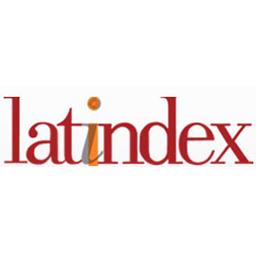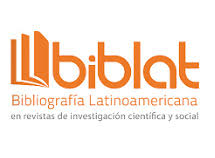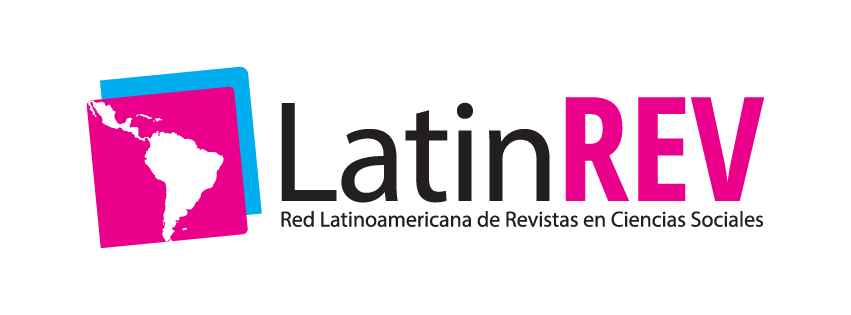Evaluación de la sustentabilidad social en la cadena de suministro manufacturera de Latinoamérica: un enfoque de capacidades
Resumen
La crisis mostró lo que hace falta y la pandemia actual por la COVID-19 evidencia la realidad de un tejido social frágil. En la literatura ha ido en incremento las investigaciones administrativas sobre la sustentabilidad social en la cadena de suministro (CS), concretamente, en el sector industrial. El objetivo de este artículo es, desde el enfoque de capacidades de Amartya Sen, evaluar la sustentabilidad social en la cadena de suministro del sector manufacturero de Latinoamérica (Latam), casos México y Colombia (MX-CO). Un poco antes de los inicios de la pandemia se aplicó una encuesta a 139 gerentes de compras para que evaluaran a sus proveedores. Se validaron las medidas a partir de un análisis factorial confirmatorio mediante el programa IBM SPSS Statistics V. 25 y una validación del modelo de medida estructural a través del programa SmartPLS 3. El resultado arrojó 13 ítems válidos en cuatro dimensiones: derechos y salud laboral, desarrollo de la comunidad externa, responsabilidad social e inclusión y equidad de género. Los hallazgos muestran que la CS del sector manufacturero Latam MX-CO es percibida con mejores esfuerzos en el cuidado social de la comunidad externa que hacía el interior con sus mismos trabajadores. Los resultados son un dato referente sobre las condiciones sociales en las que las empresas afrontaron la pandemia.
Palabras clave
Texto completo:
PDFReferencias
Awan, U., Kraslawski, A., Huiskonen, J., (2018). Governing Interfirm Relationships for Social Sustainability: The Relationship between Governance Mechanisms, Sustainable Collaboration, and Cultural Intelligence. Sustainability 10. https://doi.org/10.3390/su10124473.
Ahmadi, H., Kusi-Sarpong, S., Rezaei, J., (2017). Assessing the social sustainability of supply chains using Best Worst Method. Resources, Conservation and Recycling 126. https://doi.org/10.1016/j.resconrec.2017.07.020.
Barney, J., (1991). Firm Resources and Sustained Competitive Advantage. Journal of Management 17. https://doi.org/10.1177/014920639101700108.
Carlson, L.A., Bitsch, V., (2018). Social sustainability in the ready-made-garment sector in Bangladesh: an institutional approach to supply chains. International Food and Agribusiness Management Review 21. https://doi.org/10.22434/IFAMR2017.0114.
Croom, S., Vidal, N., Spetic, W., Marshall, D., McCarthy, L., (2018). Impact of social sustainability orientation and supply chain practices on operational performance. International Journal of Operations y Production Management 38. https://doi.org/10.1108/IJOPM-03-2017-0180.
Ehrgott, M., Reimann, F., Kaufmann, L., Carter, C.R., (2011). Social Sustainability in Selecting Emerging Economy Suppliers. Journal of Business Ethics 98. https://doi.org/10.1007/s10551-010-0537-7.
Hair, J.F., Risher, J.J., Sarstedt, M., Ringle, C.M., (2019). When to use and how to report the results of PLS-SEM. European Business Review 31. https://doi.org/10.1108/EBR-11-2018-0203.
Henseler, J., Ringle, C.M., Sarstedt, M., (2015). A new criterion for assessing discriminant validity in variance-based structural equation modeling. Journal of the Academy of Marketing Science 43. https://doi.org/10.1007/s11747-014-0403-8.
Köksal, D., Strähle, J., Müller, M., (2018). Social Sustainability in Apparel Supply Chains—The Role of the Sourcing Intermediary in a Developing Country. Sustainability 10. https://doi.org/10.3390/su10041039.
Köksal, D., Strähle, J., Müller, M., Freise, M., (2017). Social Sustainable Supply Chain Management in the Textile and Apparel Industry—A Literature Review. Sustainability 9. https://doi.org/10.3390/su9010100.
Mani, V., Agarwal, R., Gunasekaran, A., Papadopoulos, T., Dubey, R., Childe, S.J., (2016). Social sustainability in the supply chain: Construct development and measurement validation. Ecological Indicators 71. https://doi.org/10.1016/j.ecolind.2016.07.007.
Mani, V., Agrawal, R., Sharma, V., (2015). Supply Chain Social Sustainability: A Comparative Case Analysis in Indian Manufacturing Industries. Procedia - Social and Behavioral Sciences 189. https://doi.org/10.1016/j.sbspro.2015.03.219.
Mani, V., Gunasekaran, A., Delgado, C., (2018ª). Enhancing supply chain performance through supplier social sustainability: An emerging economy perspective. International Journal of Production Economics 195. https://doi.org/10.1016/j.ijpe.2017.10.025.
Mani, V., Gunasekaran, A., Delgado, C., (2018b). Supply chain social sustainability: Standard adoption practices in Portuguese manufacturing firms. International Journal of Production Economics 198. https://doi.org/10.1016/j.ijpe.2018.01.032.
Mani, V., Jabbour, C.J.C., Mani, K.T.N., (2020). Supply chain social sustainability in small and medium manufacturing enterprises and firms’ performance: Empirical evidence from an emerging Asian economy. International Journal of Production Economics 227. https://doi.org/10.1016/j.ijpe.2020.107656.
Marshall, D., McCarthy, L., McGrath, P., Claudy, M., (2015). Going above and beyond: how sustainability culture and entrepreneurial orientation drive social sustainability supply chain practice adoption. Supply Chain Management: An International Journal 20. https://doi.org/10.1108/SCM-08-2014-0267.
Meier, C., (2017). Supply Chains in the Apparel Industry: Do Transnational Initiatives for Social Sustainability Improve Workers’ Situation? https://doi.org/10.1007/978-3-319-62785-4_10.
Nath, V., Agrawal, R., (2020). Agility and lean practices as antecedents of supply chain social sustainability. International Journal of Operations y Production Management 40. https://doi.org/10.1108/IJOPM-09-2019-0642.
Ringle, C.M., Wende, S., Becker, J.-M., (2015). SmartPLS 3. Bönningstedt: SmartPLS. Retrieved from. http://www.smartpls.com.
Rodríguez, J.A., Giménez, C., Arenas, D., (2016). Cooperative initiatives with NGOs in socially sustainable supply chains: How is inter-organizational fit achieved? Journal of Cleaner Production 137. https://doi.org/10.1016/j.jclepro.2016.07.115.
Sekaran, U., Bougie, R., (2016). Research Methods for Business: A Skill-Building Approach. , 7th ed. John Wiley y Sons, New York.
Sen, A., (1993). O desenvolvimento como expansão de capacidades. Lua Nova: Revista de Cultura e Política. https://doi.org/10.1590/S0102-64451993000100016.
Sudusinghe, J.I., Seuring, S., (2020). Social Sustainability Empowering the Economic Sustainability in the Global Apparel Supply Chain. Sustainability 12. https://doi.org/10.3390/su12072595.
Trautrims, A., Schleper, M.C., Cakir, M.S., Gold, S., (2020). Survival at the expense of the weakest? Managing modern slavery risks in supply chains during COVID-19. Journal of Risk Research 23. https://doi.org/10.1080/13669877.2020.1772347.
Wacker, J.G., (1998). A definition of theory: research guidelines for different theory-building research methods in operations management. Journal of Operations Management 16. https://doi.org/10.1016/S0272-6963(98)00019-9.
Yawar, S.A., Seuring, S., (2017). Management of Social Issues in Supply Chains: A Literature Review Exploring Social Issues, Actions and Performance Outcomes. Journal of Business Ethics 141. https://doi.org/10.1007/s10551-015-2719-9
Enlaces refback
- No hay ningún enlace refback.
Copyright (c) 2022 Regiones y Desarrollo Sustentable

Este obra está bajo una licencia de Creative Commons Reconocimiento 4.0 Internacional.
REGIONES Y DESARROLLO SUSTENTABLE
Año XXIII, No. 44, Enero-Diciembre, 2023, es una revista de publicación continua editada por El Colegio de Tlaxcala, A.C., Avenida Melchor Ocampo No. 28, Col. San Pablo Apetatitlán, Apetatitlán de Antonio Carvajal, Tlaxcala, C. P. 90600 Tel. 52 (246) 46 4 52 33, ext. 1135, http://www.coltlax.edu.mx/openj/index.php/ReyDS, rev_regionesydesarrollosustentable@coltlax.edu.mx Editor responsable: Arturo Juárez Martínez. Reserva de Derechos al Uso Exclusivo No., ISSN:2594-1429, otorgados por el Instituto Nacional de Derecho de Autor. Responsable de la última actualización de este número, Departamento de Ediciones de El Colegio de Tlaxcala, A.C., Arturo Juárez Martínez, Avenida Melchor Ocampo No. 28, Col. San Pablo Apetatitlán, Apetatitlán de Antonio Carvajal, C.P. 90600, fecha de última modificación: 02 de febrero de 2024.








